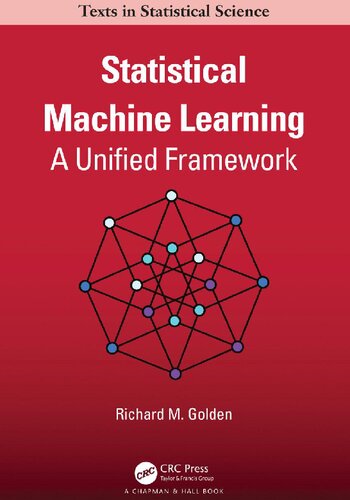

Most ebook files are in PDF format, so you can easily read them using various software such as Foxit Reader or directly on the Google Chrome browser.
Some ebook files are released by publishers in other formats such as .awz, .mobi, .epub, .fb2, etc. You may need to install specific software to read these formats on mobile/PC, such as Calibre.
Please read the tutorial at this link: https://ebookbell.com/faq
We offer FREE conversion to the popular formats you request; however, this may take some time. Therefore, right after payment, please email us, and we will try to provide the service as quickly as possible.
For some exceptional file formats or broken links (if any), please refrain from opening any disputes. Instead, email us first, and we will try to assist within a maximum of 6 hours.
EbookBell Team

4.7
36 reviewsThe recent rapid growth in the variety and complexity of new machine learning architectures requires the development of improved methods for designing, analyzing, evaluating, and communicating machine learning technologies. Statistical Machine Learning: A Unified Framework provides students, engineers, and scientists with tools from mathematical statistics and nonlinear optimization theory to become experts in the field of machine learning. In particular, the material in this text directly supports the mathematical analysis and design of old, new, and not-yet-invented nonlinear high-dimensional machine learning algorithms.
Features:
This advanced text is suitable for graduate students or highly motivated undergraduate students in statistics, computer science, electrical engineering, and applied mathematics. The text is self-contained and only assumes knowledge of lower-division linear algebra and upper-division probability theory. Students, professional engineers, and multidisciplinary scientists possessing these minimal prerequisites will find this text challenging yet accessible.
About the Author:
Richard M. Golden (Ph.D., M.S.E.E., B.S.E.E.) is Professor of Cognitive Science and Participating Faculty Member in Electrical Engineering at the University of Texas at Dallas. Dr. Golden has published articles and given talks at scientific conferences on a wide range of topics in the fields of both statistics and machine learning over the past three decades. His long-term research interests include identifying conditions for the convergence of deterministic and stochastic machine learning algorithms and investigating estimation and inference in the presence of possibly misspecified probability models.